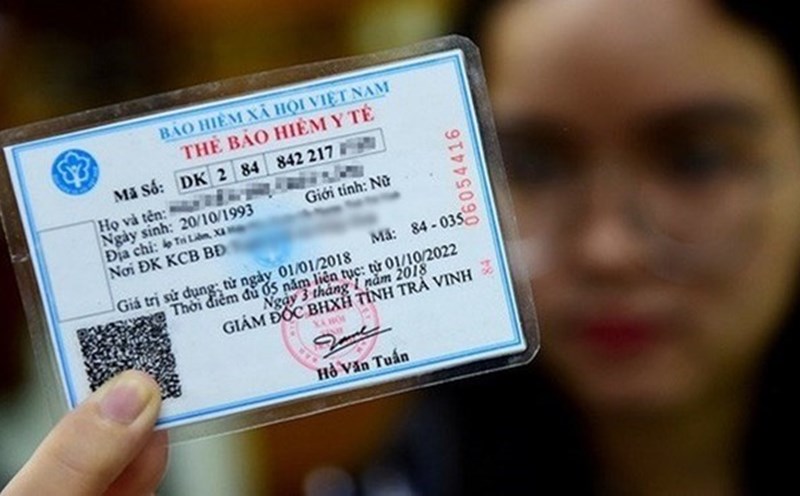The amended and supplemented Law on Health Insurance (HI) 2024, effective from July 1, 2025, marks an important step forward in expanding health insurance coverage and increasing benefits for people when accessing health services.
Expanding the subjects participating in compulsory health insurance: The law adds many groups of subjects receiving state budget contributions or support for health insurance contributions such as:
People aged 75 and over who are receiving monthly death benefits.
People from 70 to under 75 years old in near-poor households are receiving death benefits.
Village health workers, village midwives.
Participants in the grassroots security force.
Agricultural - forestry - fishery - forestry households have an average standard of living.
This regulation aims to ensure health care benefits for the elderly, the disadvantaged and the workforce at the facility.
No limit on initial registration for medical examination and treatment From July 1, 2025, people are free to register for initial medical examination and treatment at any medical facility in the health insurance system nationwide, regardless of their place of residence or work.
Each quarter, participants have the right to change their registration place if necessary.In addition, inpatients are entitled to receive treatment at basic facilities nationwide without a referral letter.
Adjustment of contribution levels and contribution responsibilities:
The law stipulates that enterprises and agricultural - forestry - fishery - forestry - fishery business households that pay salaries can choose to pay monthly, 3-month or 6-month health insurance. The deadline for payment is also regulated to be more flexible and convenient.
Expanding benefits and benefits
Participants are paid 100% of medical examination and treatment costs in many cases, such as:
Exam at initial registration facilities nationwide.
Resident treatment at basic health insurance facilities.
Ethnic minorities and poor households in disadvantaged areas receive intensive medical examination and treatment.
In particular, the treatment of refractive eye disorders is supported until the age of 18 instead of under 6 years old as before.
Increase the rate of health insurance fund expenditure for medical examination and treatment: The law raises the rate of medical examination and treatment expenditure to 92% of the fund, reducing reserve expenditure to 8%, to focus resources on better serving the people.
Flexible payment mechanism: In case of shortage of drugs and medical supplies, medical examination and treatment facilities can be transferred from another place and are paid by the health insurance fund, helping patients not to interrupt treatment.
Tighten handling of violations: Units that do not pay or pay under-pay for health insurance must pay additional fees, pay an additional 0.03%/day of late payment fines and may be subject to administrative sanctions, not considering emulation and rewards.
Diversify payment methods: Depending on the group of subjects, health insurance can be paid monthly, quarterly or every 6 months, creating convenience for businesses and employees.











